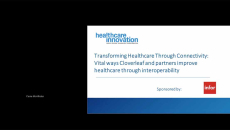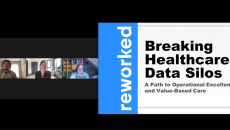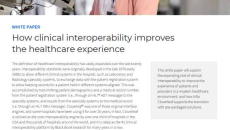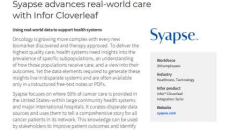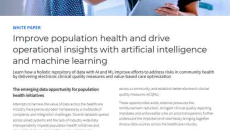White Papers
For call center customers, a great experience starts with skilled, efficient, experienced agents. Most agents need access to multiple channels and apps simultaneously: internal interfaces like a CRM and knowledge base as well as external engagement channels like social media and web chat accounts.
Across industries, IT leaders’ top priorities include eliminating unnecessary expenses, boosting efficiency and generating revenue through improved customer experiences. Implementing a unified communications platform like RingCentral’s can help businesses modernize their practices and realize these goals.
According to a Forrester report, RingCentral’s unified communications as a service (UCaaS) and contact center as a service (CCaaS) solutions result in improved customer experiences and cost savings for businesses. In addition, the study found that businesses using integrated UCaaS and CCaaS platforms benefited more compared to those that used separate unified communications and contact center platforms.
According to an IQVIA study, U.S. patients made 10 times more digital health visits in March 2021 than March 2020, showing that patients have come to appreciate telehealth’s speed and service. Adopting omnichannel patient communications enables healthcare organizations (HCOs) to connect with patients according to their communication preferences.
Data interoperability supports population health and enhanced care delivery for healthcare organizations (HCOs). However, interoperability can also foster data exchange in use cases outside the health system’s facilities.
As healthcare organizations (HCOs) move from fee-for-service care models to value-based care (VBC) models, data interoperability can provide a holistic view of the patient and provide the best possible care.
Interoperability standards were originally developed in the late 1970s and early 1980s to allow different clinical systems within hospitals to exchange data with the patient registration system. Infor Cloverleaf®, one of the original interface engines in use then, is still the core interoperability engine for more than one-third of U.S. hospitals.
Syapse consolidates and processes real-world patient data from numerous large health systems around the world providing oncology care. Insights derived from this data help those health systems improve their quality of care, strengthen the efficiency of clinical trials and add to the body of clinical knowledge that supports oncology care decisions.
External pressures like reimbursement reduction, clinical quality reporting mandates and price transparency rules further underscore the importance of bringing together diverse data sources.
Watch as Jon LeBlanc, Senior Director of Sales at Infor, Brianna Zink, Senior Director of Product Strategy, Healthcare at Infor, Todd Stonestrom, SI & ISV Success Manager, NP Healthcare at AWS, and Evan Friedman, Senior Manager, Human Capital Practice at Deloitte, discuss how changing employment practices and adopting the Infor workforce productivity platform can help organizations continue to grow in the changing work landscape.




